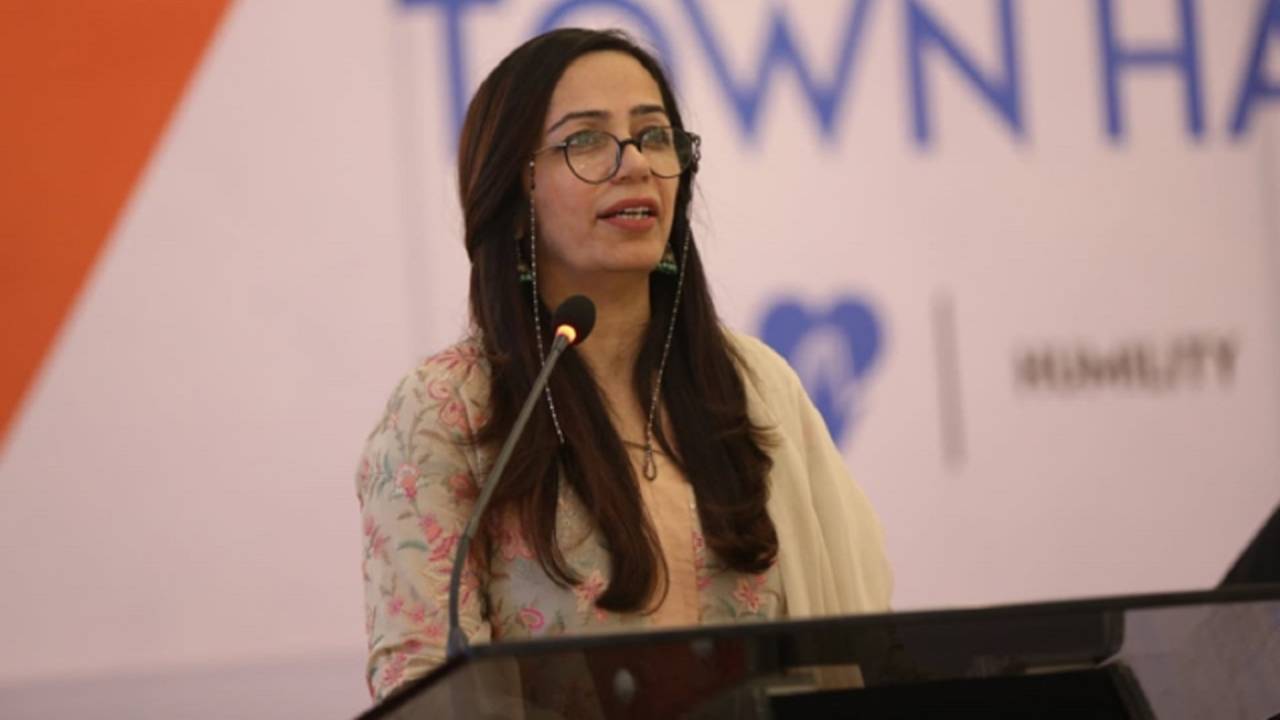Alia Zafar: 'My presence in PCB will create a sense of empowerment for women cricketers'
The PCB's first-ever female director says she can make decisions pressure-free since she's an independent member of the board
Umar Farooq
24-Nov-2020
Alia Zafar is PCB's first female director • Alia Zafar
Alia Zafar, the PCB's first-ever female director, believes her presence in the male-dominated board will provide a sense of empowerment to women cricketers in the country. Her inclusion, she says, will also bring diversity to the table.
The PCB rewrote its constitution, revamping every aspect for the governance of the cricket affairs in the country. They reduced the number of associations from eight to three in a bid to offset their influence and also brought in four independent members, including one female member in Zafar, who is presently working as a Group Head Human Resource of the Bank of Punjab.
"Having a female in the board is absolutely great," Zafar told ESPNcricinfo. "There were no women earlier in the board and when you bring women to the table, the conversation becomes more diverse. When you are approaching any area, the balance comes naturally and that will certainly help. The biggest over-arching factor is that I am an independent member, which allows me to contribute with a free mind without any hesitation.
"It's not an employment relationship, so my contribution to the table will come with a focus to providing advice and a framework without any kind of pressure. This whole scenario changes if you are taking a pay, so for me it is a just a nationalistic element and I will bring my 26 years of working experience in every possible way to make a difference."
During her career, Zafar has also been involved as a lead HR expert with Crown Agents America and as a consultant with the United Nations apart from being an avid cricket fan. She formally took charge as a PCB director earlier this month and was named to lead the PCB's Human Resource and Remuneration Committee at the PCB. Her desire though, is to strengthen the structure of women's cricket in the country and help it grow.
"Women's cricket hasn't developed [as much] in Pakistan but it has a lot of potential," Zafar said. "My presence within the PCB for itself will create a sense of empowerment for women cricketers and that is essential for us going forward, creating a pathway for females. My working background is based on my expertise around Human Resource and it's about the performance of the team and creating momentum within the team so that we can achieve our goal and excellence.
"There are a number of components put in place right now and the PCB has done a lot in term of compensation and benefits. That will help in the short term. In the long term, they are looking at the structure the women's cricket is standing on. I understand we don't have the presence like men's cricket but if you want to be at the same level, then you need to have the same structure, support and approach in every area. If that's put in place, that's where you start growing. But at the same time, the major challenge is the culture, do women get their space in sports? It's not just cricket, it's in general."

The Pakistan Cricket Board members pose for a photo•PCB
Besides Zafar, the other three independent members are Javed Qureshi, a former first-class cricketer, Asim Wajid Jawad, an expert in economics and Arif Saeed, an economist and corporate executive. Qureshi and Saeed are appointed for three years, and Wajid and Zafar for two.
That the four independent members are part of the board is the result of Ehsan Mani reviewing the governance structure of the PCB. The new structure has been put in place to offset the influence of the regions and the departments on the board and to make it more independent, transparent and accountable.
Cricket is the most popular sport in Pakistan and pulls a major chunk of commercial revenue from the market. Pakistan cricket has a big following in and outside the country. Every decision the board makes goes through extra scrutiny in the media and from fans. Every little detail becomes a talking point. But Zafar is ready to deal with all that.
"You cannot make decisions under pressure," Zafar said. "Decisions have to be made based on facts, strategy, skills, and discussions around it, and with an aim to have the best results. We cannot keep thinking about the potential backlash and people out there putting up slogans against us to influence our decisions. Being independent members of the board, we should be making decisions purely in the interest of Pakistan and Pakistan team.
"Integrity is an important part of how you make decisions. So this stress about extra scrutiny and criticism isn't a worry. The focus on our decisions is okay but if you are afraid of that, then you are definitely going to make wrong decisions. It's the way it is, and we shouldn't be influenced and we won't be."
Umar Farooq is ESPNcricinfo's Pakistan correspondent
